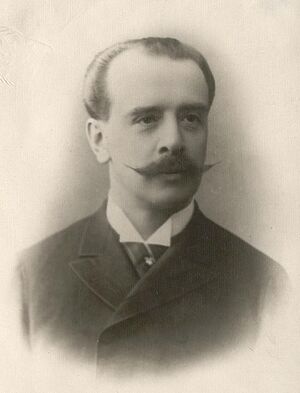Riccardo Drigo
Italian composer, conductor and pianist (b. 30 June 1846 [N.S.] in Padua; d. 1 October 1930 in Padua), born Riccardo Eugenio Drigo, known in Russia as Rikkardo Yevgenyevich Drigo (Риккардо Евгеньевич Дриго).
After becoming something of a child prodigy on the piano from the age of five, Drigo later enrolled as a student at the Venice Conservatory, where he took an interest in conducting, becoming second kapellmeister at the Garibaldi Theatre in his home town of Padua in 1867. In 1879 he moved to Russia, becoming the conductor of the Italian Opera in Saint Petersburg, and in 1886 he was appointed principal ballet conductor at the Mariinsky Theatre. Here, he conducted the premieres of Tchaikovsky's ballets The Sleeping Beauty (1890) and The Nutcracker (1892), as well as a posthumous perfomance of Act II of Swan Lake (1894). The latter ballet was subsequently revised by the composer's brother Modest, who commissioned Drigo to make alterations to the music, including the interpolation of some of Drigo's own orchestrations of three of Tchaikovsky's Op. 72 piano pieces. In this revised form, Swan Lake was given its first complete performance at the Mariinsky Theatre under Drigo's direction in 1895.
Drigo's own ballet compositions were also often performed at the Imperial Theatres, including Le Talisman (1889), La Flûte magique (1893), Le Réveil de Flore (1894), La Perle (1896), and Les Millions d'Arlequin (1900).
Following the Russian revolution, Drigo returned to Padua to become kapellmeister at the Teatro Garibaldi in 1920, and remained there until his death in 1930.
Arrangements of Works by Tchaikovsky
For the 1895 production of Swan Lake, Drigo orchestrated the piano pieces Valse-bluette (No. 11), L'espiègle (No. 12) and Un poco di Chopin (No. 15), from Tchaikovsky's Eighteen Pieces, Op. 72 (1893). These were included as a supplement to the full score of the ballet (which otherwise followed Tchaikovsky's original version), and were also published separately.

